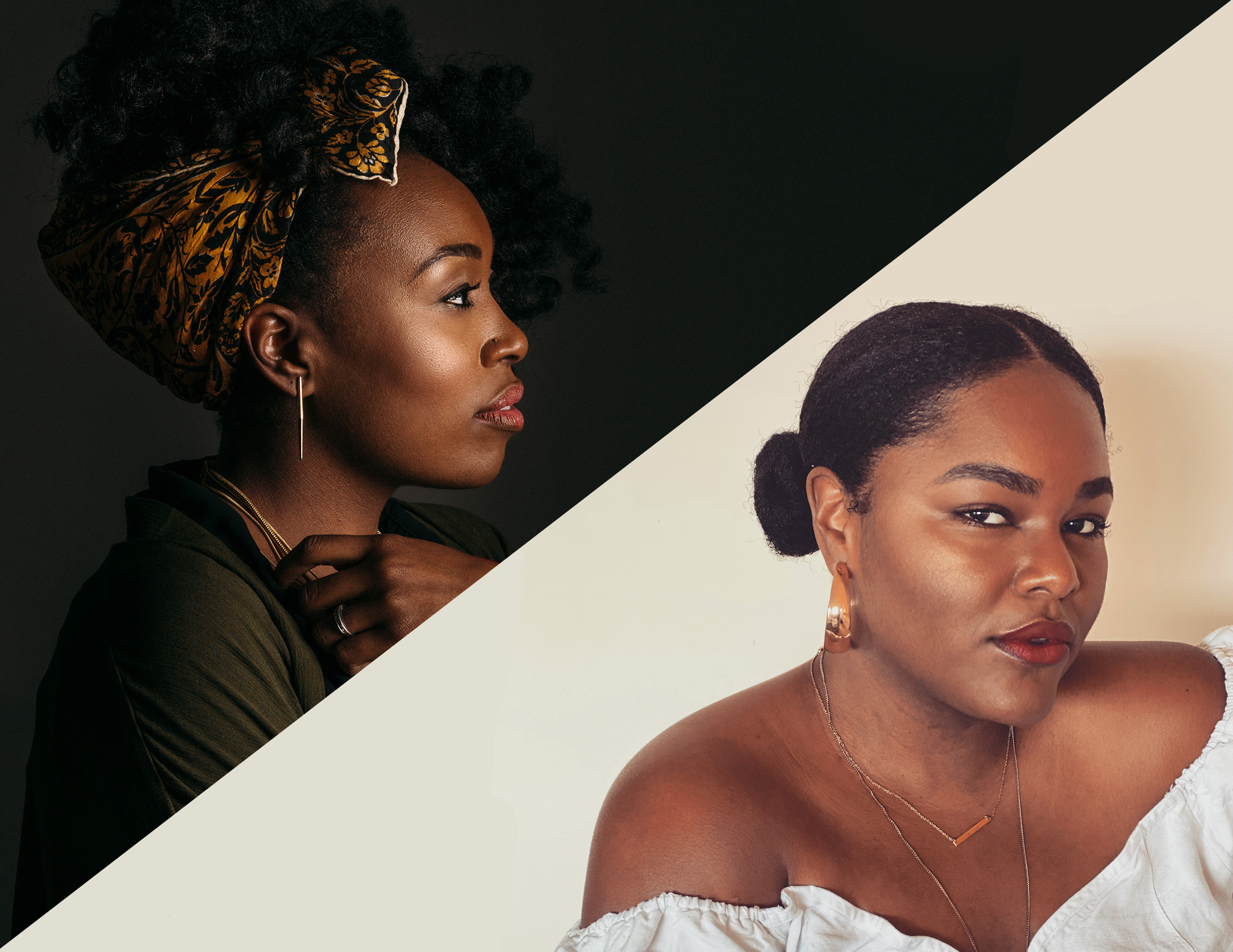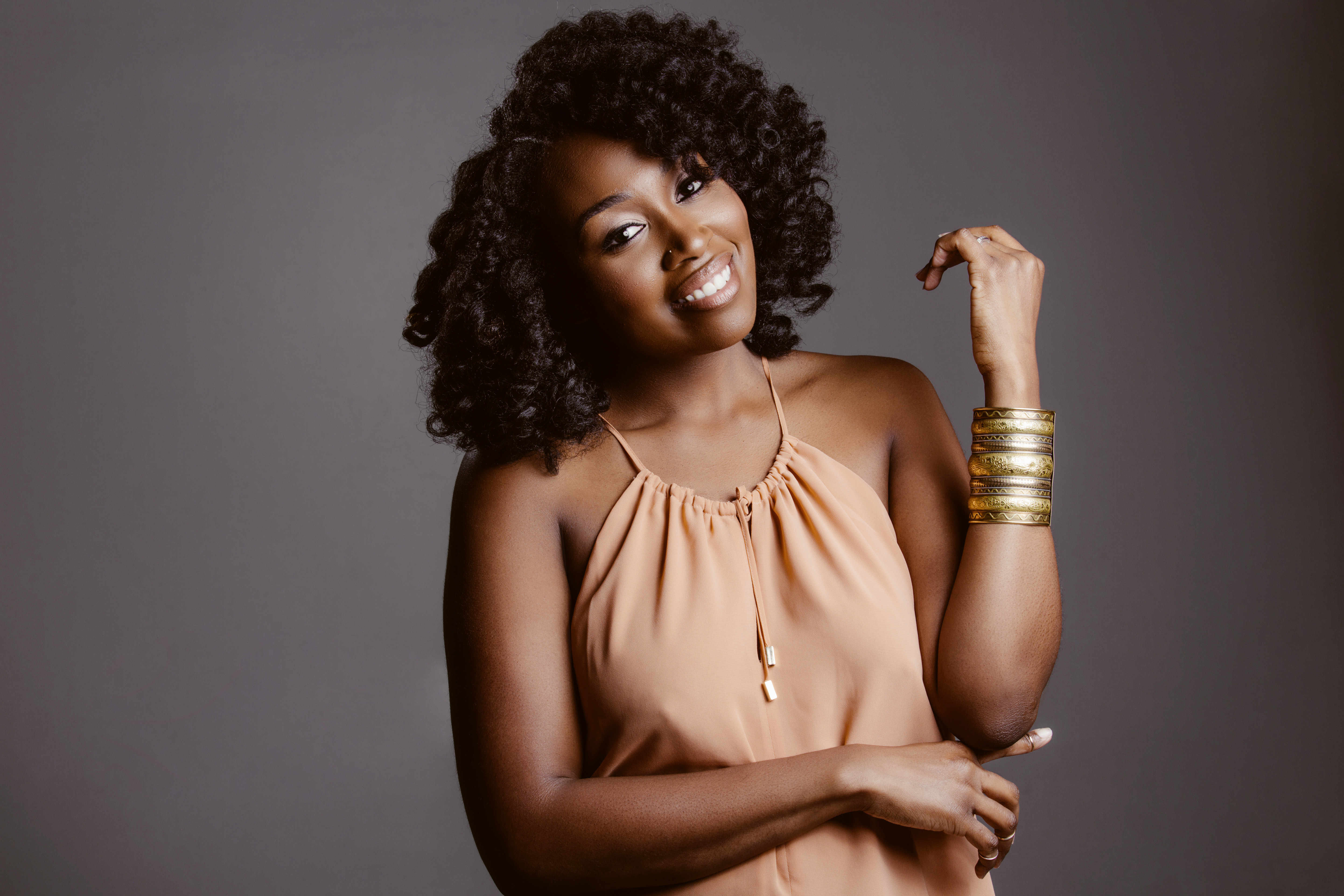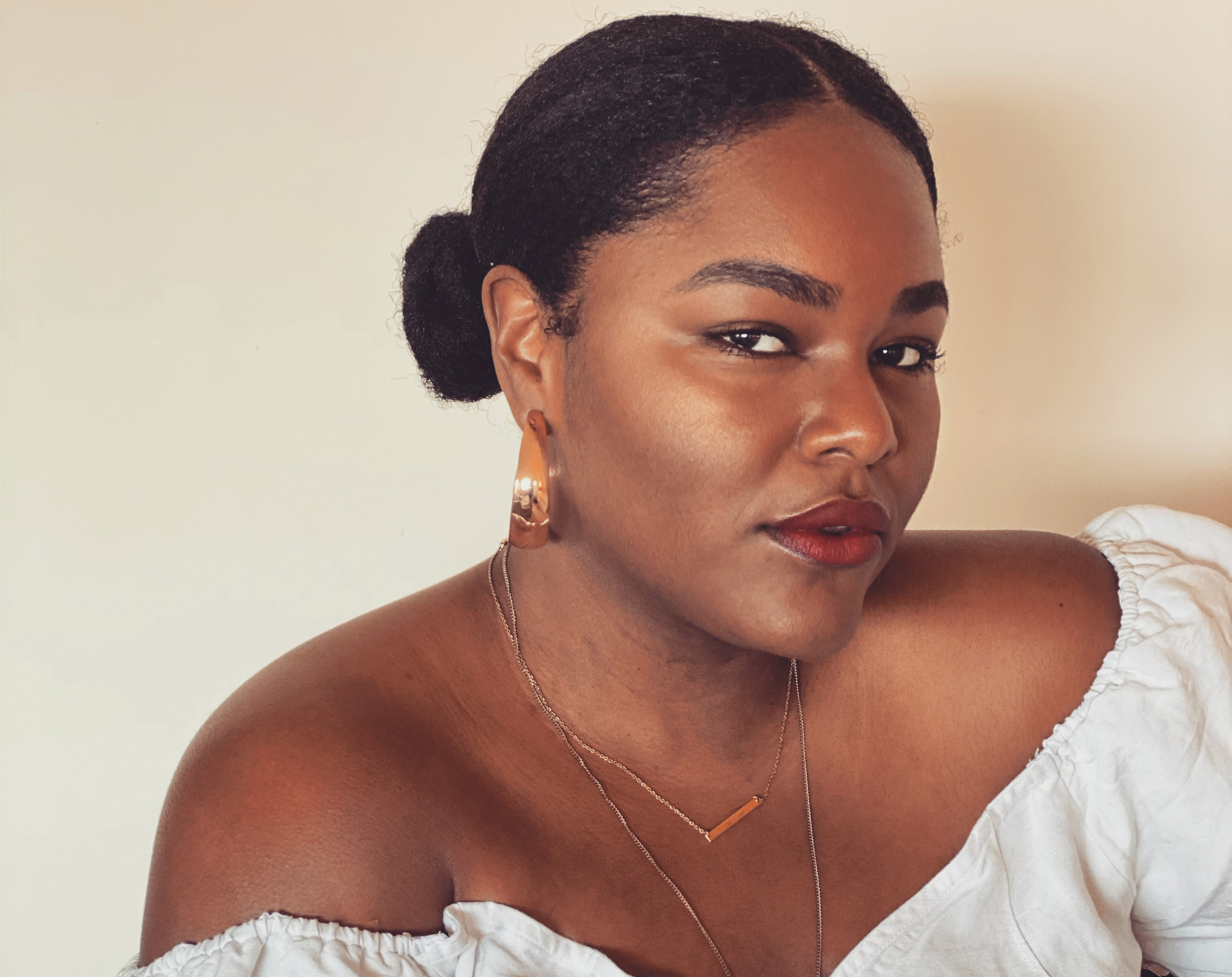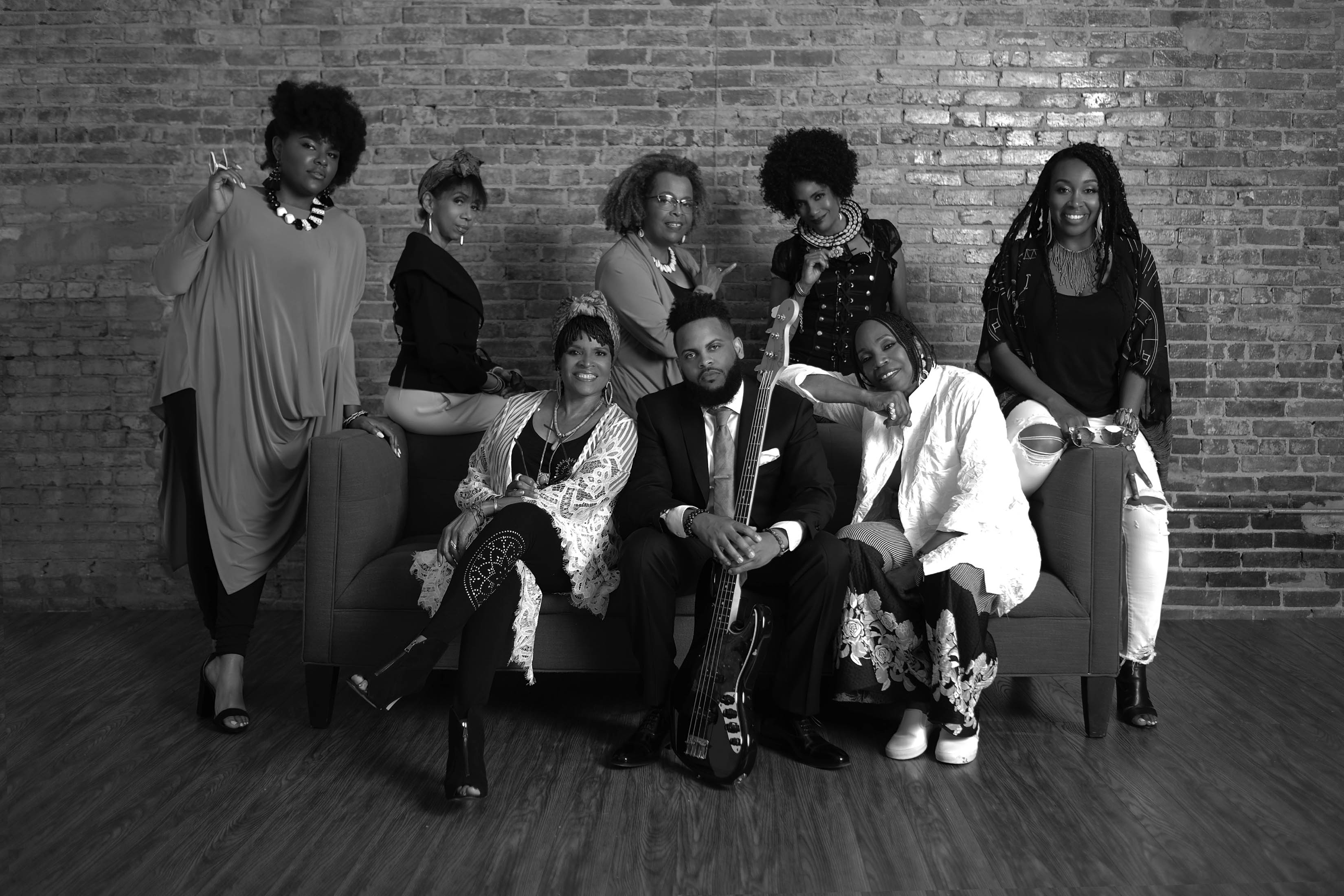Interviewed 6/22/2022 by Maya Lee, Strathmore 2022 Summer Intern
How has your life been since being at AIR?
Since I was an AIR at Strathmore, I performed internationally, nationally, I started touring with my own band, I’ve started touring with several other bands. I’ve worked with my heroes and sheroes of music. I’ve also become an educator. I feel like things have only gone up since my time at Strathmore. I was actually able to come back and present my first album release at the Mansion at Strathmore, so that was great too. My first album was called Time All Mine and I released that in October of 2016… My album went on to place on the Billboard charts.
How would you say that being in Strathmore’s Artist in Residence program played a role in who you are today as a musician and an artist?
It connected me to the community at Strathmore.
Strathmore has one of those communities that once you’re in, you’re family and you’re always taken care of.
I really appreciated that about the program, the connections I’ve made with the people there. I’ve had the opportunity to perform there several times.
I think just being given the opportunity to lead my band, to rehearse my band, to present music after having rehearsed with them, to present educational workshops, all prepared me so much for the work that I’m doing now. One of the first educational workshops I presented was at Strathmore, and since then, I’ve presented countless masterclasses and workshops.
Do you still stay in touch with the Artist in Residence community?
I do, I actually just had lunch with Betty last week. Roshelle, she’s a former AIR, she’s one of my very best friends. Some of the Artists in Residence that were my year, like Nistha Raj and Elijah Balbed, we all stay in touch for sure.
Do you continue to support each other as an artistic community or in other ways too?
Yeah, I mean, I can’t forget to mention Mark Meadows, because I’ve worked with Mark quite a bit. We were always a community before because we were both a part of the jazz and art community in DC. But for sure, doing the Strathmore Artist in Residence program connected us in a way that had a bit more depth. One of the ways we support each other is we call each other for work constantly.
How did you get started with Sweet Honey?
I started singing with Sweet Honey in 2017. My bass player Rahmir Mendez was already a member of the group as their bassist. Right now, the Sweet Honey configuration is either five to six singers, a bass player and a sign language interpreter.
What drew you to sing with them?
I was introduced to Sweet Honey’s music when I was at Howard. I sang with another a cappella ensemble at Howard, and I think part of when you’re singing in an a cappella ensemble is that you generally try to become familiar with other ensembles.
I feel like Sweet Honey was always, through their music, activists. Always telling a story, telling important stories and truths about what’s happening in the world. Also telling stories of Black people, Black women specifically.
How do you feel Sweet Honey fits into your own perception of yourself as an artist and an activist?
Before singing with Sweet Honey, I felt very much like, “I’m a jazz musician.” For me, the most important element of my music was probably making jazz music more accessible for people that look like me. I wasn’t as concerned with a social message. I was more concerned with an artistic duty to really make jazz important for people like me. Now after singing with Sweet Honey, that is still an important part of my purpose and mission as an artist, to make jazz music, Black American music, accessible to the Black community. But now I realize how important it is to not only bring that music to the forefront but to tell the stories that make Black American music what it is.
In my own artistry, I’m telling stories about my life, people around me, their lives, and just the truth. The truth about where we are today, the truth about things that are unfair and unjust today and what I can do to change that. And Sweet Honey I think encouraged me to do that.
What does it mean to you to be coming back and performing with Sweet Honey at Strathmore?
It’s huge, because one of my dreams is to perform a show on the stages like Strathmore, Carnegie Hall and Lincoln Center, and all these huge stages. To have the opportunity to become an Artist in Residence and feel like, okay I’m a little closer to that dream, then several years later
to actually realize that dream and present music with this amazing ensemble that’s a fixture in the history of our music at Strathmore is so huge. It’s a dream come true.
I imagine that when I step on the stage with Sweet Honey all of the energy and emotion will overwhelm me, in the best of ways.
How does performing with Sweet Honey feel different or similar to your personal work that you do?
Any ensemble that you’re performing with, you have to be super attuned to what the other person or what the other people are doing in the ensemble, but I think it’s especially more challenging when you’re dealing with voice. When you’re singing a cappella with no accompaniment, you don’t always have something to tune to, so you tune to each other essentially. You make an agreement with each other, where are we in this space, what are we singing, how are we going to sing it, what dynamics are we singing with, what are we deciding, as a group. Sometimes those decisions happen in split seconds, so you have to really be listening, you have to really be present and thinking on your feet, but also letting the music tell you what to do and trusting your partners in music. That to me is one of the challenges of singing with Sweet Honey.
Could you talk a little bit about your quartet and any exciting things coming up or you’ve done in the past couple years?
My quartet, I feel like, are my family. It’s called the Christie Dashiell Quartet and we are blessed enough to have Alan Johnson on the piano, Rahmir Mendez on the bass and then my actual blood brother Carol Dashiell on the drums. We very much operate like a family, similar to Sweet Honey. One of the things I’m super excited about is that I applied for a grant with Chamber Music of America, an organization in New York that focuses in on small ensembles. I was awarded their performance plus grant, which gives me access to, the term they use is an “Artist Educator.”
My Artist Educator, I have looked up to this woman my entire life, I know all of her records almost. It is Dianne Reeves. It was an actual dream to have her hear my band, to give us feedback, and spend time with her. Through that process we workshopped ten songs and in May we went to the studio and recorded. I’m super excited about releasing this music in the coming months. I feel really good about the music and the message, so I’m excited for people to hear it.
I wanted to work with Dianne Reeves because she has been an artist that I’ve looked up to and she was always telling stories in her music that made me feel seen. The way she performed the music, the way she used her voice, was more reflective of my experience growing up. When I listen to Dianne Reeves I hear RnB, I hear jazz, I hear soul, I hear gospel, I hear more traditional artforms like folk songs. I hear everything and that’s what I grew up listening to.
What are some of the topics that you touch on when songwriting?
The grant proposal that I wrote was about feeling underrepresented at the time. I think about my experience in grad school specifically, where I was one of maybe two or three Black students in my entire class. I always had this feeling where I was in school for jazz music, a black American artform, but I didn’t have people that looked like me teaching me the music. I didn’t have people that looked like me that I was performing alongside, and while I know that Black American music is not solely for Black people to play or perform, it’s for everyone, it is important that within in the people that teach us the music or the people that perform the music there needs to be some representation.
The music that I wrote is about that. It’s about my life, it’s about my family’s life, it’s about my friend’s life, it’s about stories I’ve heard. I’m hoping to humanize our experience a bit more.
I don’t want to always look at Black music in my experience through the lens of sadness and oppression.
These are important topics, and we have to talk about them, but sometimes we only look at Black life in that way and we don’t talk about our everyday being. We love, we laugh, we have joy, we have sadness, we are sensual, we go to work. We do everyday things and this album and the topics on this album are about my human experience.

Fri. September 16, 2022 | 8pm Buy Tickets
See Rice and Dashiell perform at the Music Center this fall with Sweet Honey in the Rock, an a cappella ensemble with music rooted in African American history and culture.

AIR 2015 Interview with Rochelle Rice
"What I have come to realize and embody in myself is that it is in the music an in our collective singing that we are nourished and we nourish other people."


